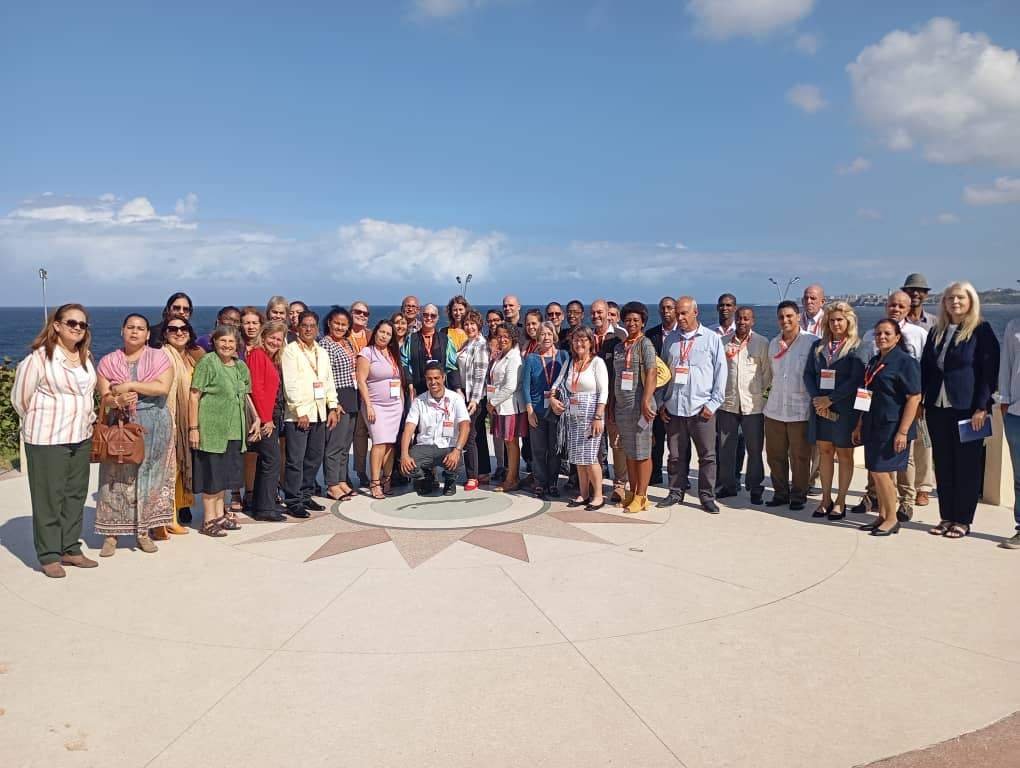This week professionals from different Cuban organisations have participated in a first workshop on the role of a National Drug Observatory and its importance for drug policies, with the aim of initiating the process of its implementation in the country. This first meeting, organised by the Cuban Ministry of Justice and the European Cooperation Programme COPOLAD III, led by FIIAPP, was attended by specialists from the National Drug Observatories of Portugal, Uruguay and Panama.
During the four days, different key issues were addressed to give content and functionality to the National Drug Observatory, such as the importance of establishing a national network of research and information on drugs, the formalisation of a scientific advisory committee and the development of a national research agenda on the drug problem, and the keys to an Early Warning System (EWS) on new psychoactive substances (NPS), emerging drugs and other threats.
Likewise, professionals from the Ministry of Justice, the Ministry of the Interior, the Ministry of Education, Science and Technology, the Ministry of Health, and the academic world presented the guidelines of drug policy in the country, the legal framework, the epidemiological situation and the drug market, the policies of prevention, treatment and control of drug trafficking, as well as studies and research in progress on different problems associated with these substances.
COPOLAD III technical assistance will continue until the launch of the National Observatory, scheduled for 2025.
Scientific evidence: key to the design of public drug policies
Public policy needs to be connected to scientific evidence and rigorously systematise the changing reality of drugs in order for responses to be based on human rights and the Sustainable Development Goals. That is why the COPOLAD Programme has been supporting National Drug Observatories (NDOs) in the region for 12 years with the aim of strengthening their work.






